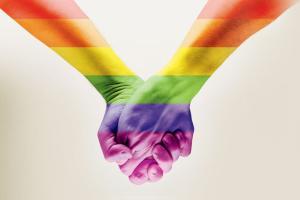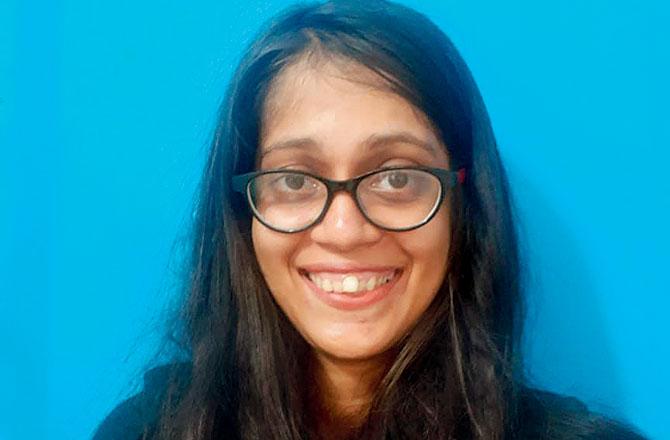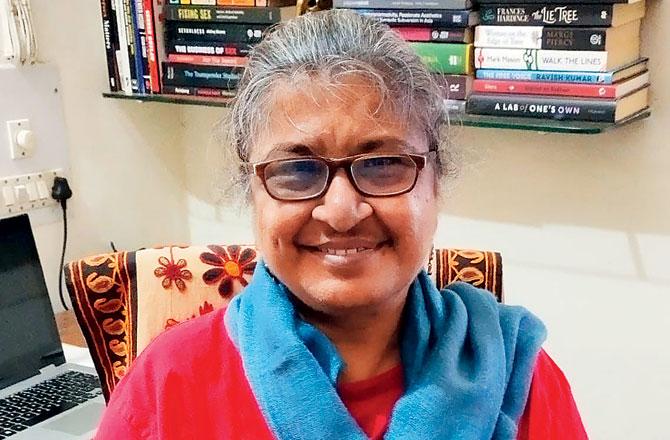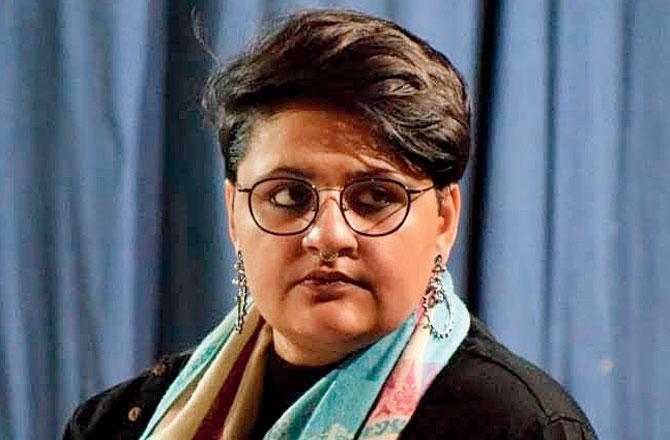As author JK Rowling faces backlash for a transphobic tweet, voices from the queer community offer advice on what it will take us all to be better allies

British author JK Rowling recently ran into trouble when she tweeted an article — with the headline, 'Creating a more equal post-COVID-19 world for people who menstruate' — saying that, "'People who menstruate.' I'm sure there used to be a word for those people. Someone help me out. Wumben? Wimpund? Woomud?" Her attempt to imply that everyone who menstruates is a woman was deemed transphobic, with netizens pointing out that not all women menstruate and not everyone who menstruates is a woman — many transmen, trans boys, girls and non-binary people also get their period. While Rowling issued a clarification statement, coming out as a sexual abuse survivor, she continued to face backlash for invalidating the identities of transgender and non-binary people. In an article for The Trevor Project, which works with the LGBTQIA+ community, Daniel Radcliffe, who played Harry Potter in the film series, called her out for the tweet, and pointed out that allies need to do more to support trans and non-binary folks. But saying you support them isn't enough; one needs to be sensitive, educate themselves, and not take over the conversation. People from the LGBTQIA+ community and professionals who work with them tell us five ways in which cisgender individuals — whose gender identity aligns with the sex assigned at birth — can be better allies.
ADVERTISEMENT

JK Rowling
1 Pronoun preference
Just ask, don't assume: this is the thumb rule everyone should swear by, says Chayanika Shah, of LABIA - A Queer Feminist LBT Collective in Mumbai. Aryan Somaiya, a 32-year-old transman and a counsellor with The Alternative Story, agrees and adds, "When you are confused or don't know how to address a queer person, ask for their pronouns or the name they would like you to use." Shah suggests we make it a general practice. "Mention your own pronoun and ask for the other person's too. This has to be a system that we use for everyone, not just some people, because then you are already making assumptions of who should be asked about their pronouns. Nowadays, you'll find people signing off their emails with their respective pronouns [for instance, she/her]."

Jagruti Wandrekar
2 Watch your language
TISS student and co-founder of the Thane Queer Collective, Kris Chudawala, feels that language is one of the leading reasons that can make someone feel misgendered. "One should use gender-neutral language; in English, it's best to use 'they'. While speaking in vernaculars like Hindi, one can use honorifics like 'aap'," they add. Giving us another example of using inclusive language, queer affirmative therapist Jagruti Wandrekar, who co-facilitates Saahas, a free therapy support group for the LGBTQIA+ community, says, "Instead of asking someone who their boyfriend or girlfriend is, use the word partner. This is obviously subject to whether you're in a space or need to ask them this question at all."

Chayanika Shah
3 Educate yourself
Drawing from her interactions, Wandrekar says that often, even though cis people call themselves allies, they do things that can harm their queer friends. "Don't take over their conversations, out people without their consent, or casually dismiss their struggles," she elaborates. Somaiya, too, stresses on the fact that one needs to be emotionally present while listening to the lived experiences of queer, trans and non-binary folks. "Get educated on the history of queerness and transness. Attend programmes on gender and sexuality," he adds. Chudawala points out that the onus of educating is on cis people. "However, if you do ask nicely, we will educate you. It's not the responsibility of the marginalised community to explain themselves," Chudawala tells us.

Aryan Somaiya
4 Walk the talk
Wandrekar suggests that it's important to use one's privilege to reduce the sense of isolation that members of the LGBTQIA+ community often feel. "Use the power that you have in circles you inhabit and further queer voices. Find opportunities for them in your circles. Trans persons, especially, lose out on opportunities of education and hiring due to their identity. Positive or affirmative discrimination helps level the playing field a little," explains Somaiya. Wandrekar suggests corporates not indulge in tokenism. "Prejudice and discrimination are still reported by a lot of individuals on a daily basis. While hiring at the workplace, make your policies queer-friendly."

Kris Chudawala
5 A person is a person
Shah feels that above everything, it is important to understand that a person is a person, and we should treat every individual with equal amount of love and respect. She adds that depending on the nature of the interaction, one should be mindful of questions they ask queer folks. "Let the person tell you as much as they want about themselves. A person's gender is one part of who they are, and can't be the focal point of a conversation, unless they choose to do so."
Wandrekar concludes that it's important to understand that if a person from a marginalised gender tells you a certain experience is not okay, it isn't. Citing Rowling's example, she explains, "Anyone in the majority can't dictate to the minority how their experience is
or isn't."
Learn, share, support
. US-based organisation, The Trevor Project, has a guide on the basics of gender identity and expression.
LOG ON TO thetrevorproject.org
. Agents of Ishq has explainers in fun, yet simple language with interesting trivia.
LOG ON TO agentsofishq.com
Catch up on all the latest Mumbai news, crime news, current affairs, and a complete guide from food to things to do and events across Mumbai. Also download the new mid-day Android and iOS apps to get latest updates.
Mid-Day is now on Telegram. Click here to join our channel (@middayinfomedialtd) and stay updated with the latest news
 Subscribe today by clicking the link and stay updated with the latest news!" Click here!
Subscribe today by clicking the link and stay updated with the latest news!" Click here!






